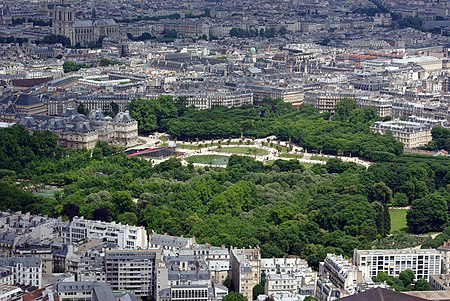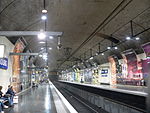Jardin du Luxembourg

The Jardin du Luxembourg (French pronunciation: [ʒaʁdɛ̃ dy lyksɑ̃buʁ]), known in English as the Luxembourg Garden, colloquially referred to as the Jardin du Sénat (Senate Garden), is located in the 6th arrondissement of Paris, France. Creation of the garden began in 1612 when Marie de' Medici, the widow of King Henry IV, constructed the Luxembourg Palace as her new residence. The garden today is owned by the French Senate, which meets in the Palace. It covers 23 hectares (56.8 acres) and is known for its lawns, tree-lined promenades, tennis courts, flowerbeds, model sailboats on its octagonal Grand Bassin, as well as picturesque Medici Fountain, built in 1620. The name Luxembourg comes from the Latin Mons Lucotitius, the name of the hill where the garden is located.
Excerpt from the Wikipedia article Jardin du Luxembourg (License: CC BY-SA 3.0, Authors, Images).Jardin du Luxembourg
Rue de Fleurus, Paris Quartier de l'Odéon (Paris)
Geographical coordinates (GPS) Address Phone number Website External links Nearby Places Show on map
Geographical coordinates (GPS)
| Latitude | Longitude |
|---|---|
| N 48.846944444444 ° | E 2.3372222222222 ° |
Address
Jardin du Luxembourg
Rue de Fleurus
75006 Paris, Quartier de l'Odéon (Paris)
Ile-de-France, France
Open on Google Maps









